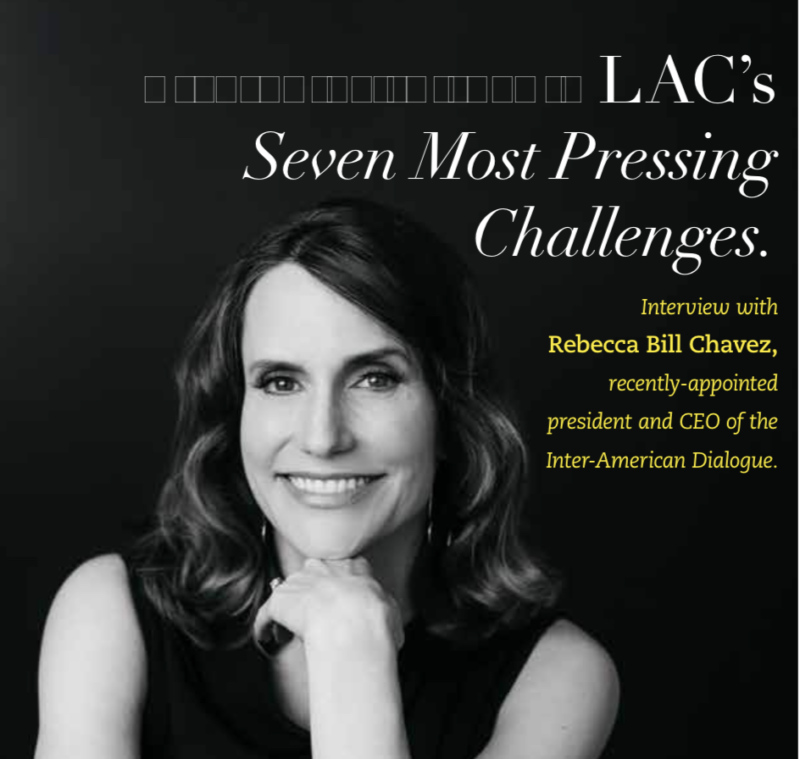Protecting Latin America’s Poor During Economic Crises
History tells us that economic crises cause large increases in poverty. The most recent economic crisis will cause Latin America’s GDP to contract around 2 percent in 2009.
”In the near term, there are several, very significant, challenges that have to be tackled,” said Rebecca Bill Chavez, recently-appointed president and CEO of Washington DC-based think tank, the Inter-American Dialogue. The list is not very long, but it encompasses all the vital issues, as anyone familiar with the region can attest. She mentioned migration, inclusive economic recovery, access to quality education and public health, climate change, energy transition and food security. “These are issues that public policy really has to focus on,” she said.
Amid a deep political polarization, she notes that these are not problems for the political left or the right to confront alone. “These issues are part of a shared agenda,” she said.
Cooperation is indeed needed within each country and, furthermore, international cooperation is the only sensible way to solve some of these complex problems. Migration, she pointed out, is the best example of an area where international cooperation is an absolute must.
A serious move against the negative effects of climate changes is also a place where the intervention of the countries involved in general yields better outcomes than policies orchestrated by a single country.
Access to education, health, and food, conversely, need special international and local attention. “Latin America and the Caribbean had the longest school closures in the world,” she said. “Covid-19 had a huge impact on education. It hit the most vulnerable households the hardest,” she added. The task would be to focus on connectivity, to grow the number of those who have access to distance learning, and to reduce unequal access to education.
On June 7, the Office of the Mayor of Los Angeles, CAF- Development Bank of Latin America, and the Inter- American Dialogue (IAD), jointly hosted a series of workshops featuring US and Latin American mayors, along with other experts focused on the theme of shared challenges and shared solutions of cities in the Americas.
History tells us that economic crises cause large increases in poverty. The most recent economic crisis will cause Latin America’s GDP to contract around 2 percent in 2009.
The goal of education is to promote learning. Sitting in classrooms is a weak proxy for knowing how to read, do math, and apply science. Latin America needs to worry less about schooling and more about learning.
It was just over a year ago that leaders of 34 nations of the hemisphere gathered in Trinidad and Tobago for the Summit of the Americas. How much progress has been made in the past year on the goals expressed at the summit?
